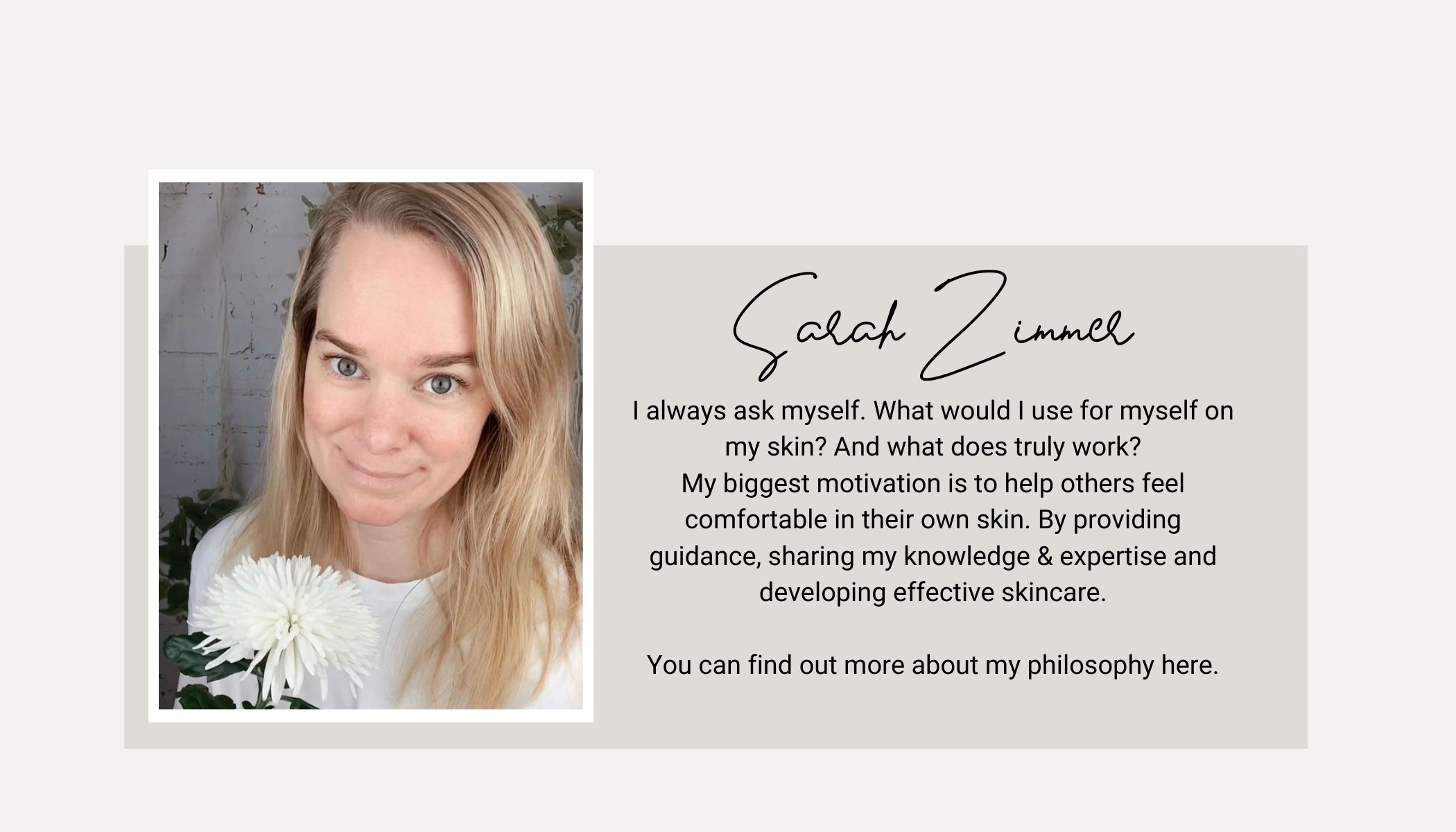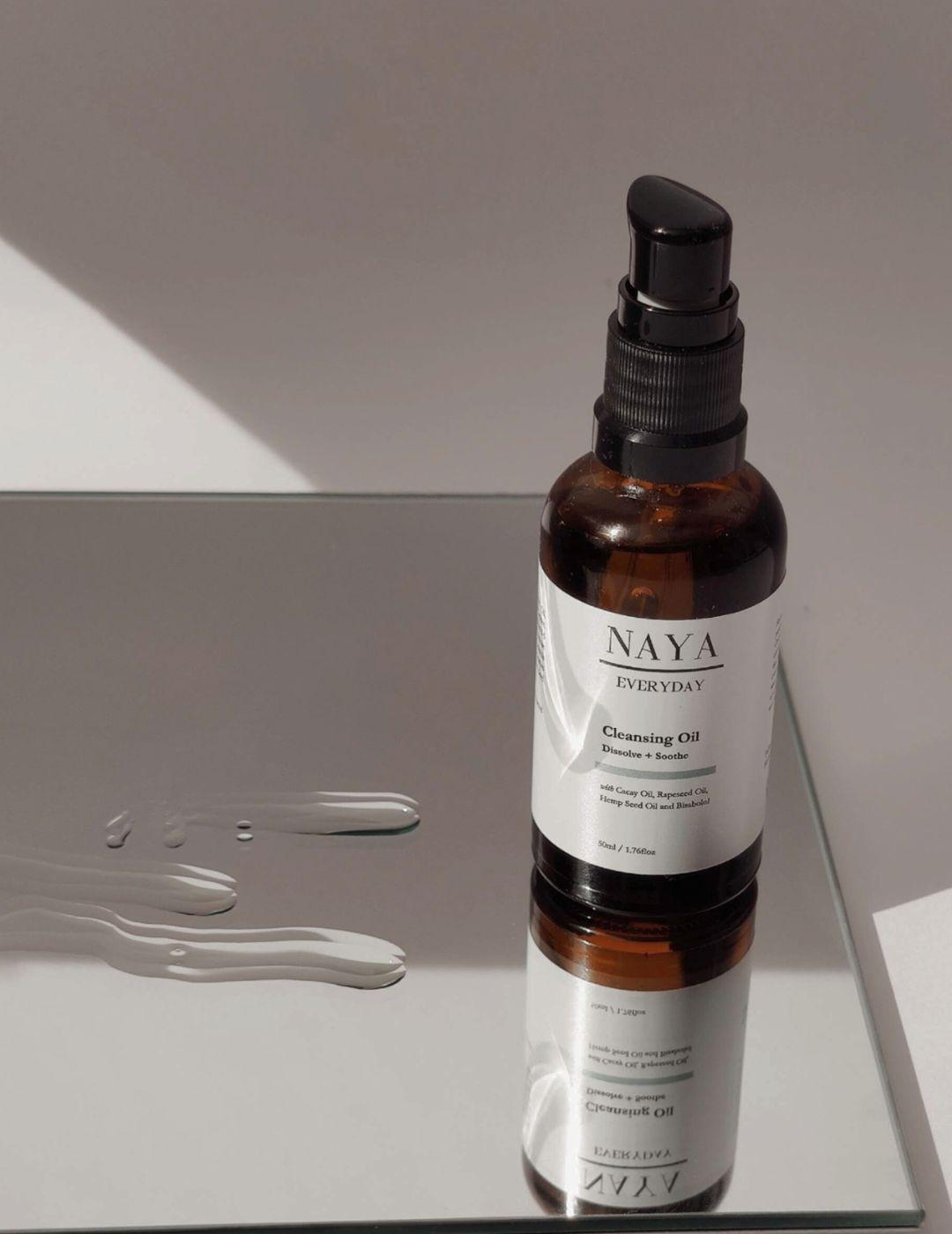Pentylene Glycol: Hydrating & Antimicrobial Benefits
PENTYLENE GLYCOL
Pentylene Glycol is a moisturiser used in cosmetic products, specifically a multifunctional moisturizing alcohol. Unlike monohydric alcohols such as ethanol and denatured alcohol, this type of alcohol does not cause dryness. This makes it particularly appealing for use in preservation. In many cases, especially in natural cosmetics, drying monohydric alcohols are still used as preservatives as a substitute for parabens. However, Pentylene Glycol offers numerous advantages. It is highly skin-friendly, even for sensitive skin and individuals with rosacea. It is entirely plant-based and serves as a sustainable alternative for preservation—not just in natural cosmetics.
Moisture-Binding with Anti-Microbial Characteristics
Our Everyday Glow Serum and Day Cream is a water / oil emulsion. Because it contains water, microorganisms can potentially live in it. Therefore, we must preserve our creams and serums to offer to our customers safe products. This means we need to prevent bacteria and fungi from multiplying in the water / oil emulsion. However, we do not want conventional preservatives such as bacteriocides, fungicides and certainly not Phenoxyethanol, Potassium Sorbate or Sodium Benzoate. These work in very small quantities, but have no benefit for the skin – on the contrary. They can cause more harm from triggering allergies and drieness. Potassium Sorbate is caused in baby cosmetics which I find highly debatably because it can be an irritant.
What is Pentylene Glycol (Pentyleneglycol)?
Pentylene glycol is an antimicrobial, chemically produced diol that has been in the German Drug Codex since 2009. However, it is not only approved in Germany, but now also approved worldwide as a cosmetic active ingredient. Originally it is based on the unripe juice of sugar beets, meanwhile, the synthetic production is standard.
It is used more frequently in cosmetic products today, but there are many other uses. The substance has both moisture-binding and antimicrobial properties. As a dihydric alcohol, it prevents in a certain concentration that multiplying of undesirable microorganisms. For example, we also know this effect from brandy with a high alcohol content, which does not need to be preserved and is even suitable for disinfection. Normally, microorganisms develop very quickly in cosmetic products such as water / oil emulsions, so that suppliers have to do their utmost to rule out the proliferation of fungi and bacteria. However, conventional preservatives are of no use to the skin. On the contrary, in many cases they can even cause harm. At NAYA, at the core, we want to produce safe products to put the mind of our customers at ease but also each and every ingredient has a role to play and needs to add value to the skin.
Pentylene glycol, on the other hand, is classified neither as hazardous to health nor as toxic because the substance can not be detected in urine and human tissue. It is therefore considered safe. Thanks to its very good compatibility, sensitization of the skin is virtually eliminated. Another immensely important advantage of pentylene glycol is that, in contrast to conventional alcohol, no dehydrating effect occurs even at a higher dosage.
Due to the double functionality (on the one hand as a humectant and on the other hand the antibacterial effect) pentylene glycol is not listed as a classic preservative in the ‘Kosmetikverordnung’. This means that NAYA products are labeled as “free of preservatives” and the requirements of the Cosmetics Regulation are still adhered to.
In any case, classic preservatives are suspected of causing or promoting allergies. Pentylene glycol, on the other hand, is a gentle alternative with a low risk of allergy. The substance has proven itself in many high-quality cosmetic products and can be optimally integrated into many formulations.
Pentylene glycol in Cosmetics
Pentylene glycol can be used in day and night creams, eye and sun creams or specifically developed for mature skin face masks. Since the substance is able to optimally bind water and thus supply the skin with specific moisture, it is ideal in everyday skincare. The skin is hydration-binding and much better with regular use of appropriate preparations. The skin feels plumper and smoother and looks much better. Overall, the complexion appears much brighter, the degree of hydration of the skin undergoes a clear increase. Even skin irritations usually disappear after some time.
At NAYA, we always look at vegan and plant-based alternatives. So read on…
Pentylene Glycol – the even more compatible “Green variant”
Recently, there is an even more compatible version of pentylene glycol, based on by-products from manufacturing processes based on sugarcane residues and corn spindles. It offers the same positive properties as the chemically produced variant, but its novel natural origin opens up interesting application possibilities in eco-certified cosmetic products. In this way, the degree of naturalness in the desired cosmetic products is increased, while the so-called ecological footprint is reduced. Sustainably produced pentylene glycol is the first “green” alkanediol to be able to optimally preserve cosmetic formulas as the sole antimicrobial agent. In addition, the substance has the ability to improve the overall skin feel of cosmetic products. This could be proven in studies with volunteers. While glycerin and conventional 1,3-propanediol formulations were on average, green pentylene glycol products performed best in seven of a total of eight categories.
Particularly positive were the “low stickiness” as well as the “rapid absorption through the skin”. These very impressive results underline the very good skin care properties of the natural variety. Boom!
But that is not all…
The Green variant can also improve bioavailability
Due to the plant’s origin, it is actually appropriate to use the green variant in cosmetic formulations, especially as product safety has meanwhile been proven. Extensive testing with more than 100 volunteers and a test duration of 40 days showed no signs of sensitization or skin irritation in any single subject. Therefore, it can be assumed that pentylene glycol from natural raw materials is just as safe and mild as the synthetically produced variant. Our Pentylene Glycol is made of a by-product from the sugarcane industry. Even the expert panel of the “CIR” (Cosmetic Ingredient Review) came to a similar positive assessment in its final safety report, which was published some time ago. Green Pentylene Glycol convinces with an outstanding multi-functionality that includes the cornerstones of “Moisturizing the Skin”, “Antimicrobial Protection” and “Improving Sensory Properties”. But also, the bioavailability of active ingredients is also improved by pentylene glycol.
In Summary
In the beauty industry, it is not always black or white. Many traditional ingredients that once based on not natural sources have long overhauled and revamped to meet the demand of today’s sustainable conscious consumers. The beauty of living in this century is that we have developed many beautiful ingredients and thus can offer advanced skincare to be safe and effective to use. You will find Pentylene Glycol in our Everyday Day Cream and in our Everyday Glow Serum, so you can enjoy those beautiful products without any concerns.
If you like to learn more, please feel free to message us any time.
References
R. Pillia, G. Schmaus, S. Lange, J. Roeding, (2005), “1,2 Pentanediol-a Multifunctional ingredient for Personal Care Applications”; SOFW 06-2005; S. 13-22.
Y. Sander, R. Pillai; Pentylenglykol, (2018), “Ein zeitloser, multifunktionaler Kosmetikbestandteil”, SOFW 12-2018; S. 18-25.
S. Behnke, Y. Sander, M. Larnicol, J. Couplet, S. Lange, J. Claus; (2018) “Sustainable and Multi-purpose, bio-based pentylene glycol”, SPC 10-2018; S. 50-52.








Leave a comment